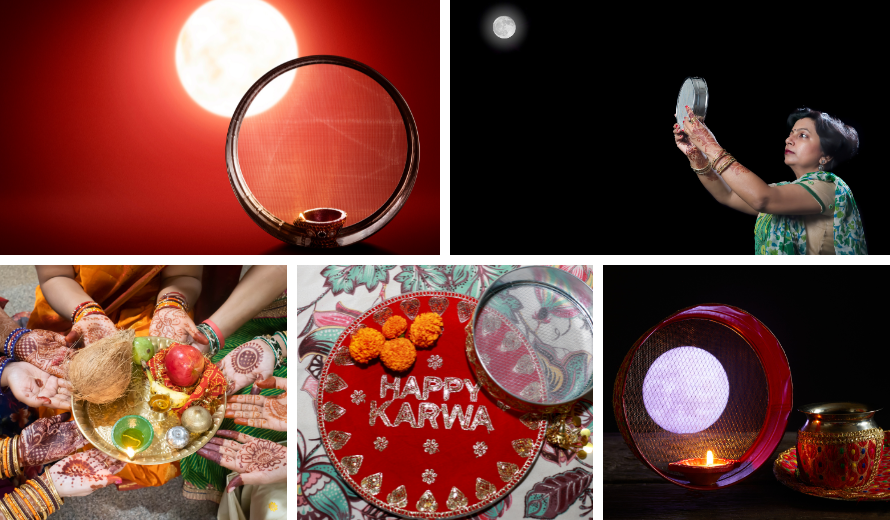Indian festivals are not just celebrations; they are windows into the rich tapestry of Indian culture and traditions. Among the many vibrant and diverse festivals, Karwa Chauth stands out as a remarkable blend of fasting, feasting, and unwavering faith. This ancient Hindu festival has garnered the attention of Non-Resident Indians (NRIs) living in the USA, Canada, and the UK for its unique customs and cultural significance. In this comprehensive exploration, we will delve into the history, rituals, and the modern-day relevance of Karwa Chauth for NRIs, shedding light on this fascinating celebration.
Historical Context: Karwa Chauth through the Ages
Karwa Chauth’s roots can be traced back to ancient times when women observed fasts to ensure the safety and longevity of their husbands. While the festival’s origin is somewhat murky, it has been celebrated for centuries in North India. Historically, it was a way for women to come together in solidarity, offering prayers for the well-being of their spouses. The festival revolves around a strict fast, which begins before sunrise and concludes after the sighting of the moon.
Karwa Chauth Rituals: A Day in the Life Of Indian Wives
The Karwa Chauth fast is not for the faint hearted. On this day, married women wake up well before dawn to partake in a meal known as “Sargi,” which sustains them throughout the day. The fast is broken only when the moon is seen in the evening sky. The most iconic moment of the festival is when women gather in a circle, holding a sacred pitcher or “Karwa,” and sing songs, pray, and exchange stories. The breaking of the fast is a solemn and emotional moment that often involves the husband feeding his wife the first morsel of food, signifying their bond.
Modern-Day Karwa Chauth: A Cultural Bridge for NRIs
For NRIs living in the USA, Canada, and the UK, Karwa Chauth offers a unique opportunity to stay connected with their roots and celebrate their culture. This festival, with its mix of tradition and devotion, serves as a cultural bridge that connects them to the land they left behind. While the customs remain largely the same, the way NRIs celebrate Karwa Chauth has evolved with time.
Many NRIs participate in Karwa Chauth events organized by local Indian communities. These events include group fasting, community prayers, and cultural performances, creating a sense of unity and shared experience among NRIs. Additionally, modern technology has made it easier for couples separated by distance to celebrate together. Video calls, where the husband witnesses his wife’s rituals and the moon sighting, have become a common practice.
The Pros and Cons of Karwa Chauth
Like any tradition, Karwa Chauth has its pros and cons. On the positive side, it fosters strong family bonds and offers a break from the daily routine, allowing couples to spend quality time together. The festival also encourages women to take a day off, relax, and pamper themselves. However, the strict fasting, especially when it falls on long summer days, can be physically challenging. Some critics argue that it reinforces traditional gender roles, with women bearing the brunt of the fasting and rituals.
Celebrating Karwa Chauth Abroad
Karwa Chauth is a celebration that beautifully blends fasting, feasting, and faith, offering NRIs in the USA, Canada, and the UK a unique opportunity to connect with their Indian heritage. Its historical significance, intricate rituals, and modern adaptations make it a truly captivating festival.
As NRIs celebrate Karwa Chauth in faraway lands, they not only observe a sacred tradition but also create new memories that reflect the enduring bond of love and devotion. Karwa Chauth is a testimony to the resilience of cultural traditions in an increasingly globalized world, and it serves as a reminder of the deep-rooted cultural values that continue to thrive among NRIs. So, the next time you see a beautifully adorned NRI celebrating Karwa Chauth, you’ll understand the rich tapestry of customs and emotions woven into this remarkable festival.

